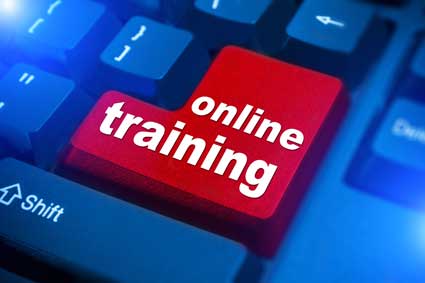While you may not necessarily need employees when you begin your business coaching service, you may find that you will later on in your career. Having employees requires you to establish policies for human resources in your business. Even if you do not currently have employees, you should still prepare for them if you plan on having them at some point.
This article will cover some of the basics for employees, including the hiring process, training, termination, and other legalities you will need to consider for your business coaching service. It is for you to use as a guide in getting started with the human resources aspects of your coaching service. As your coaching business expands and your staff size grows, you may find that you will need to go beyond what is covered here.
Why Hire Employees?
A part of your development as a business coach involves growing and expanding your business. The more your business grows, the more help you will need. You are, after all, only human and you have limitations in what you can safely and efficiently do in your business. Hiring employees usually serves to fill a need in the business that you yourself cannot do on your own.
The roles that your employees will fill in your business coaching service will depend on what needs to be done. Maybe you need a secretary to help manage clients and your schedule. Maybe you need to have someone on staff to run the finances and make sure that all the billing gets done on time. Maybe your work load has gotten so heavy that you need another coach. Whatever the reason, it is best to find someone who can effectively do the work you need them to do as soon as they are needed.
In order for you to have employees, you need to go through the hiring process. The purpose of the hiring process is to not only find the necessary people for your business, but to make sure that they are the most qualified for the job. Each step is designed to help you find the best fit as quickly as possible, although you can include additional stages for your own selection process.
- Applications-You will need to put together a notice for potential employees about the job opening with your business. Think about what it is that you need and what qualities you are looking for. Try to summarize what is involved with the job you are offering-duties, requirements, responsibilities, and any necessary specifications. 1 You want to present the position and your business as appealing as possible to potential applicants. Avoid under- or overloading the notice with information that can deter applicants.
You should be sure to establish a clear means of applying for potential employees. Requests for a current resume and a cover letter are fairly standard. A list of references unrelated to their employment history is also something you should consider asking for if it is not already included on their resume. If you are hiring another business coach, you may want to vet their application with a bit more effort. Asking for a recording of a sample coaching session and letters of reference is not unheard of. For the sake of your business, you want to make sure that any other coach you bring in will be able to meet the expectations you have established.
- Interviews-Once you have narrowed down the applicants, you can begin the interview portion of the hiring process. Due to the logistics of scheduling, it can actually be the longest part of the process. You will want to be accommodating of the candidates without letting them walk all over you.
In preparation for the interview, you should review their application information and take note of anything that stands out. Contact their references and past employers to ask questions about their work ethic, abilities, and overall attitude. Ask if there were any problems and check for discrepancies in their application. Be careful if you skip things because you don't believe they are important enough to check them out, as you might miss out on learning vital information that can make or break your decision to hire them.
When the interview happens, bring your notes with you. Inquire about the same things you did during preparation, especially if it's about something you are concerned about. Ask about their skills and possibly even test them. If you need them to be able to work with something specific, ask about their familiarity with it. Have them expand on past experiences that are relevant to the position. For other coaches, have them demonstrate their abilities to see if they match what's on paper. Seeing them in action will often impact your decision more than anything else during the interview.
- Background Checks-Your final choices for the position will need to be checked out even further with a background check. They may have the perfect application and wowed you during the interview, but that does not mean that there isn't something about them that can be harmful to your coaching business. Basically, you want to make sure that everything that has been said about them by themselves and others is accurate.
Standard employee background checks allow you to make sure that the person you are looking to hire is who they say they are. The information you can legally access about the applicant will vary by state, but you can usually get information about their criminal records, any bankruptcies they may have filed, and their worker's compensation records without any additional permissions. 2 If the applicant has provided the correct levels of consent, you can also get information on their education, military service, and credit.
Training
Once you have selected the applicant that is the most qualified and meets all of your standards, you can actually hire them and start their training. You will need to report them as a new hire to your state and the IRS, which can be done through the agency's website with little issue. 3 This is so you and your employee can have access to necessary information for your respective records and tax information.
Once you have file all the paperwork and done away with the formalities of welcoming them to your business, you can begin their training. You should provide them with an employee handbook or any other such packet of information detailing company policies that they will need to know like code of conduct, termination policies, security information, and legal statements. 4 Handbooks can be handed out in hardcopy or digitally. You should also be sure to keep a copy on hand for your own reference, even if you are the one who wrote it.
For training, you will need to introduce your new hire to the business operations. Walk them through the day-to-day of the business in general and their own duties. You should make sure that they familiarize themselves with the business' structure. This includes showing them where things are, how to open and lock up the space for business hours, login information for the computers, and even how you have your phone system set up.
Some employers consider having a probationary period for new hires, a length of time to test them in the field. It allows them to display their skills, apply their training, and find their footing overall in the business. You may combine their training time with their probationary period if you so choose. However, you should be reasonable with the time frame of their probation. If it is too short, then they will not be able to accurately adjust-and neither will you. If it is too long, you risk making the job too easy for them to truly learn.
Termination
As much as you may not want to think about it, you will probably need to fire an employee for some reason during your career. Establishing termination policies long before then will allow you to make sure that they are compliant with employment laws on state and federal levels, and also allow you to make sure that they are appropriate for your coaching business.
Employee termination can occur for a number of reasons. Business decisions such as downsizing can be particularly difficult for employers because they need to decide who to layoff. Sometimes employees are dishonest or do harm to the business and need to be fired. Whatever the case, you need to make sure that you are terminating your employees correctly. There are some legal protections and cushions for employees who are terminated, largely in part to ensure that you as the employer are not terminating their employment unlawfully. 5 Non-discrimination laws, for example, are one such protection. They are designed to prevent employers from firing employees based on age, race, gender, religion, sexual orientation, or background.
In the event of an employee termination, you will need to do it properly and clearly. Talk to them face to face, and don't simply say "You're fired, get out." Things like severance pay, which is usually their last paycheck that they are eligible for at the time of their dismissal, is a commonly offered. You are not required by law to tell them why you are firing them, but you may need to disclose it later. Future employers may ask about it during the hiring process or you might be asked if the employee feels like you fired them based on discrimination or other legal violations. When the termination is complete, you will need to once again notify the proper federal offices like the IRS and update your own records.
Legalities
In addition to the legal aspects discussed in the above sections, there are going to be additional laws that you will need to be in compliance with as an employer. Some are rather straight forward and are universal throughout all fifty United States. Others may be governed by the state you operate in and have additional requirements on a federal level.
- Employee Benefits-There are certain benefits that you are required to offer your employees. Insurance aspects-unemployment insurance, disability, and worker's compensation-are all fairly standard. Depending on your state's requirements, you may need to offer leave benefits through the Family and Medical Leave Act or FMLA. 6 FMLA requires employers to offer leave for things like jury duty, sickness, holiday and vacation, and bereavement or funerals. It also requires employers to allow employees protected unpaid leave for things like birth and child care, and the care of themselves or immediate family members due to serious health issues for up to 12 weeks in one year. However, FMLA only applies to all public employers, and private employers with a total of fifty or more employees. You can still consider offering FMLA benefits even if you do not meet the above requirements.
- Health and Safety Regulations-Under the Occupational Safety and Health Act (OSHA), you are required to protect your employees from serious harm and hazards in the workplace. Safety requirements will be set on a federal level and on a state level. BOTH are applicable to your business and it is your responsibility to comply with all OSHA laws. Familiarizing yourself with the OSHA laws in your state and on the federal level is a good idea for your client's sake as well, as you may need to address workplace health and safety as part of your coaching.
Maintaining your business coaching service's workplace is often the easiest way to meet the requirements. Any noticeable, recognized hazards must be dealt with. Safety inspections, repairs, and keeping track of problems can prevent violations and maintain a safe environment. Make it a part of company policy for anyone who sees something that is a hazard to the safety and health of staff and clients to notify management so it can be handled accordingly. You may want to consider allotting a portion of your budget for maintenance and upkeep, and devise a plan in the event that something does happen to warrant major repair work.






















